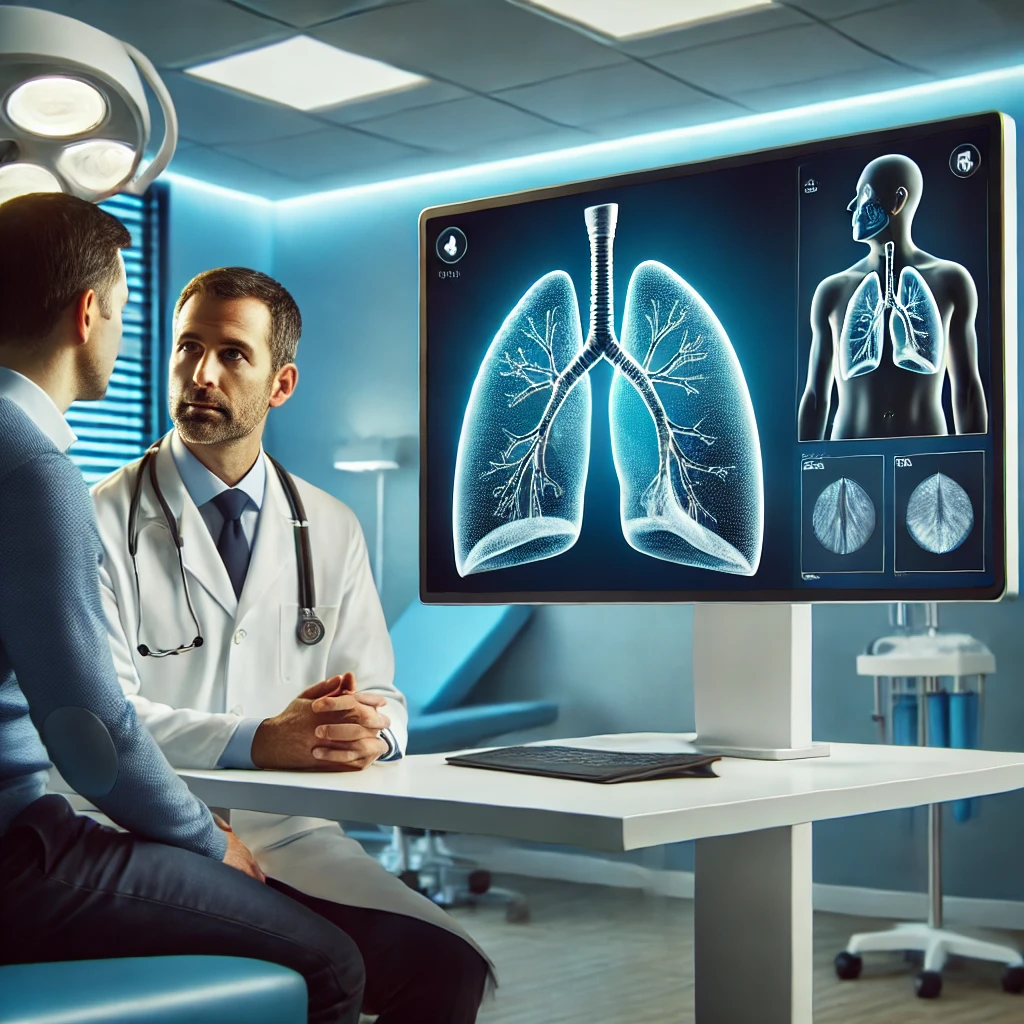The lungs play a crucial role in overall health, ensuring that the body receives enough oxygen to function efficiently. When breathing becomes difficult due to lung diseases or other respiratory conditions, seeking specialized care is essential. Pulmonary specialists diagnose and treat a variety of lung-related issues, offering comprehensive solutions to help patients breathe more easily and maintain a better quality of life.
Whether it’s a persistent cough, shortness of breath, or a serious lung disorder like chronic obstructive pulmonary disease (COPD), the expertise of a pulmonary dr can be life-changing. Understanding when to see a lung specialist and what conditions they treat can empower individuals to take charge of their respiratory health.
What is Pulmonary Medicine?
Pulmonary medicine, also known as pulmonology, is a medical specialty focused on diagnosing and treating diseases that affect the lungs and respiratory system. Pulmonary specialists, or pulmonologists, use a range of diagnostic tools to identify lung conditions and develop personalized treatment plans for their patients.
Common tests include pulmonary function tests (PFTs), bronchoscopy, imaging scans, and sleep studies. These tests help assess lung capacity, detect airway obstruction, and evaluate the effectiveness of treatment strategies.
Common Pulmonary Conditions Treated by Specialists
Pulmonologists treat a wide variety of respiratory disorders, from mild breathing issues to complex lung diseases. Some of the most common conditions include:
Chronic Obstructive Pulmonary Disease (COPD)
COPD is a progressive lung disease that leads to airflow obstruction and breathing difficulties. It includes conditions such as chronic bronchitis and emphysema. Symptoms often include persistent coughing, shortness of breath, and wheezing. While there is no cure, pulmonologists can help manage COPD through medications, oxygen therapy, and pulmonary rehabilitation.
Asthma
Asthma is a chronic lung condition that causes inflammation and narrowing of the airways, making breathing difficult. It can be triggered by allergens, respiratory infections, or environmental factors such as smoke and pollution. Treatment typically includes inhalers, bronchodilators, and corticosteroids to help control symptoms and prevent asthma attacks.
Pulmonary Hypertension
Pulmonary hypertension occurs when the arteries in the lungs become narrow, leading to high blood pressure in the lungs. This condition makes it harder for the heart to pump blood, which can lead to heart failure if left untreated. Pulmonary specialists work closely with cardiologists to develop treatment plans that may include medications, oxygen therapy, or surgical procedures.
Sleep Apnea
Obstructive sleep apnea is a serious sleep disorder in which breathing repeatedly stops and starts due to airway blockages. It can lead to daytime fatigue, high blood pressure, and an increased risk of heart disease. Pulmonologists often prescribe CPAP therapy, which uses continuous positive airway pressure to keep airways open during sleep.
Interstitial Lung Disease (ILD)
Interstitial lung disease is a group of disorders that cause lung scarring, making it difficult for oxygen to enter the bloodstream. This condition can result from long-term exposure to harmful substances, autoimmune diseases, or infections. Treatment often includes anti-inflammatory medications, oxygen therapy, and lifestyle adjustments.
Lung Infections and Pneumonia
Lung infections can range from mild respiratory tract infections to severe pneumonia. A pulmonary dr will evaluate symptoms, conduct tests, and provide appropriate medications to manage infections effectively. Some lung infections may require hospitalization and oxygen support.
Lung Cancer
Early detection of lung cancer is critical for successful treatment. Pulmonologists work with oncologists to diagnose and treat lung cancer using imaging tests, biopsies, and specialized therapies.
The Role of a Pulmonary Specialist in Patient Care
A pulmonary dr plays a vital role in managing lung diseases by offering accurate diagnoses, developing personalized treatment plans, and providing ongoing care. They assess patients’ medical history, perform physical examinations, and use advanced technology to evaluate lung function.
Many pulmonary specialists also emphasize preventive care by educating patients on lifestyle changes, smoking cessation, and environmental risk factors. Pulmonary rehabilitation programs help patients improve lung capacity through breathing exercises and physical therapy.
Advanced Diagnostic and Treatment Options
Pulmonologists use a variety of advanced tools to diagnose and manage lung diseases effectively. Some of the most common diagnostic and treatment methods include:
- Pulmonary Function Tests (PFTs) – Measure lung capacity, airflow, and oxygen exchange efficiency.
- Bronchoscopy – Uses a thin, flexible tube with a camera to examine the lungs and collect tissue samples.
- Imaging Scans – Chest X-rays and CT scans help identify abnormalities in the lungs.
- Oxygen Therapy – Delivers supplemental oxygen to patients with low blood oxygen levels.
- Lung Biopsy – Used to diagnose lung cancer, infections, and other lung diseases.
When to See a Pulmonary Specialist?
Recognizing the symptoms that require a pulmonologist’s attention is crucial for early diagnosis and effective treatment. Individuals should consider scheduling an appointment if they experience:
- Persistent shortness of breath that worsens over time
- Frequent respiratory infections such as bronchitis or pneumonia
- Chronic cough lasting longer than eight weeks
- Unexplained weight loss or fatigue
- Wheezing or chest tightness
- Difficulty breathing while lying down
Seeing a pulmonologist early can help prevent complications and improve long-term lung health.
How to Maintain Healthy Lungs?
Maintaining good lung health is essential for overall well-being. Here are some practical steps to improve respiratory health:
- Avoid smoking and exposure to secondhand smoke.
- Stay active and engage in regular exercise to strengthen lung capacity.
- Maintain a healthy diet rich in antioxidants and vitamins.
- Get vaccinated against flu and pneumonia to prevent lung infections.
- Minimize exposure to environmental pollutants, allergens, and workplace toxins.
- Seek medical attention for any persistent respiratory symptoms.
Take Control of Your Lung Health
Managing lung health requires a proactive approach, including regular check-ups, lifestyle modifications, and adherence to prescribed treatments. If you are experiencing respiratory issues, seeking medical attention from a trusted pulmonary specialist is the first step toward improved lung function and overall well-being.
For expert pulmonary care, schedule an appointment today by visiting Interstate Pulmonary Associates. Their team of experienced specialists is dedicated to providing comprehensive lung care tailored to your needs.
